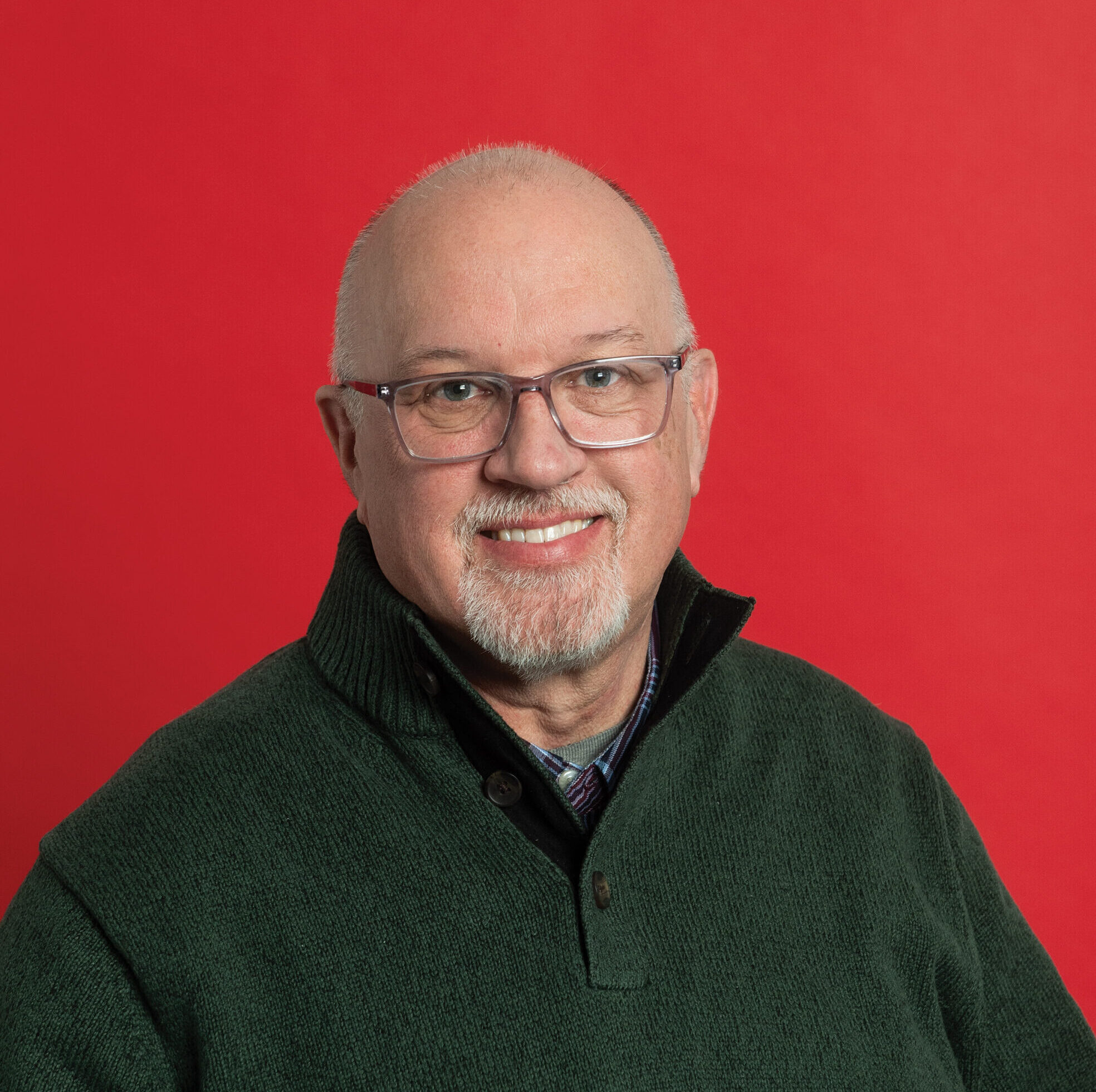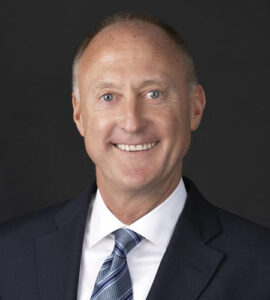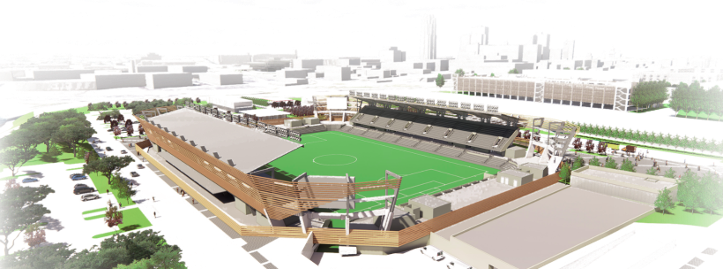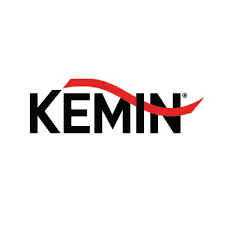Soccer stadium moving forward with infrastructure work planned to start next spring
Organizers turn attention from filling funding gap to crafting a stadium design that fits available funding

Michael Crumb Jun 25, 2025 | 6:00 am
6 min read time
1,410 wordsAll Latest News, Real Estate and DevelopmentInfrastructure work that needs to be done in advance of the construction of the proposed Pro Iowa Soccer Stadium and Global Plaza is expected to begin in spring 2026 as members of the board overseeing the project concede they won’t likely be able to close a $23.1 million funding gap.
The project, which organizers say will add to the vibrancy of downtown Des Moines and be an economic driver and draw workers to the region, will have to be re-engineered to mirror the funding that is available.
The nonprofit Iowa Soccer Development Foundation has proposed a 6,300–seat stadium and other development on the former Dico Inc. site, a superfund site south of Martin Luther King Jr. Parkway and east of Fleur Drive, with plans to bring a United Soccer League franchise to the city.

The funding gap has nagged the project, raising skepticism about its future, but Jeff Lorenzen, president of the ISDF board, said the project is full steam ahead with work expected to begin next spring and a goal of the first game being played in 2028.
“We have some ground preparation the city has committed to in helping it get ready, but once it’s prepared, and we think that can get done [over the next nine months], we should be ready to break ground,” he said.

Lorenzen, CEO of American Equity Investment Life Insurance Co., and board member Matt Anderson, assistant city manager for the city of Des Moines, sat down with the Business Record Monday and discussed the status of the project and the next steps that will lead up to work beginning next spring.
The project received a boost in fall 2024 when the Iowa Economic Development Authority board approved $23.5 million from the Iowa District Reinvestment Act, allowing ISDF to advance its plans to build a stadium that will meet USL standards.
The project, initially estimated at $95 million, will be “value-engineered” to accommodate the funding that is available for the project, Anderson said.
The project has raised $71.9 million. The list of donors so far includes:
- Kyle and Sharon Krause: $23 million
- Individual and corporate gifts: $12.2 million
- State of Iowa: $13 million from Iowa Reinvestment Act
- Prairie Meadows: $200,000
- City of Des Moines: $1.5 million from American Rescue Plan Act funds
- Polk County: $17 million
- State of Iowa: $5 million from Destination Iowa grant
Dan Jansen, program manager for ISDF, said the $13 million from the Iowa Reinvestment Act is the current value of last year’s IEDA award, which is a state incentive that must be paid back over 20 years. The $5 million Destination Iowa grant is only intended to help pay construction costs, not costs associated with architecture and design, he said.
ISDF issued a request for proposal for architectural services and is negotiating a contract as it tries to keep project costs down, Anderson said.
“We’re getting close to maxing out our ability to raise additional funds,” he said. “The gap is what it is. We can go nibble around the edges and get a million here and a million there but we’re not going to find another $20 million and the board knows that.”
The project can be re-engineered and still meet the requirements of the USL, he said.
For example, Anderson said a bare bones stadium could maybe be built for $50 million with add-ons depending on how much the ISDF can afford.
“There are bare bones stadiums with aluminum bleachers with no cup holders to SoFi Stadium in Los Angeles,” he said. “Where do you put enough amenities in that the fans and players are getting a good experience versus where are you just adding too much that the cost is unnecessary and it doesn’t really affect the fan experience? We’re not going to have aluminum bleachers with no cup holders, but it doesn’t need to be SoFi, so where’s the middle ground where we in Des Moines, Iowa, can afford?”
SoFi stadium is a 70,000-seat stadium that is home to the NFL’s Los Angeles Chargers and Los Angeles Rams, and is part of a 300-acre sports and entertainment district. It can be expanded to more than 100,000 seats for major events.
The city of Des Moines has committed up to $13 million to assist with environmental remediation at the stadium site, Anderson said.
He said the site provides some challenges and that “we have to be very deliberate on how we engineer the site.”
“Once we know exactly what the stadium footprint is, where the footings are going to go, where the utilities need to be dug, that’s when you work with the EPA,” Anderson said. “It’s a very interesting site because the contamination is so specific that just moving a tree 10 feet in one direction or another dictates what you do with the soil you pull out of that hole.”
He said parts of the asphalt cap that is currently at the site will be removed as underground utility work begins. Once that is complete, the area will be recapped.
Lorenzen said the project is important for the metro because it turns a blighted site into an economic driver for the community.
He said a feasibility study by Johnson Consulting estimated the stadium and Global Plaza will generate $8.8 billion in revenue over 20 years, and create 2,000 permanent jobs and 6,800 part-time jobs.
“It’s pretty significant,” Lorenzen said. “I think about all the additional capital investment that will be done through housing, restaurants and retail. That only increases that tax revenue on what will be more usable space with higher dollar amounts attached to it.”
It will also help bring people to downtown Des Moines, Lorenzen said, estimating it would attract more than 1 million people a year.
The stadium could be used for other events, too, such as concerts and other sports, such as lacrosse, he said.
It also will help tie in the south corridor along MLK Parkway from Gray’s Lake to the developing Market District, and the ICON Water Trails sites. It will be a connector to nearby developments by Hubbell Realty Co., and Sherman Associates, Lorenzen said.
“This just complements that and makes it more attractive as people come in,” he said. “Right now, when you come in on MLK, the first thing you see is this old factory site that has nothing on it. And now you will have this beautiful stadium. You see the baseball stadium. It adds an appeal.”
The stadium and Global Plaza will be another ingredient that will add to the vibrancy of downtown Des Moines and help with job retention and attraction, Lorenzen said.
American Equity announced in May 2024 that it is moving from its current location at 6000 Westown Parkway in West Des Moines to the former Nationwide building at 1100 Locust St., and Lorenzen said the company sees the soccer stadium and other downtown development as a tool to attract more employees.
“For us, it draws in more potential employees because our offices will be downtown,” he said. “If you start having more people downtown, it’s the catalyst that starts to evolve all the other things that can happen downtown.”
Anderson said the city will continue to own the land, while ISDF will own the stadium. The group will find a third-party to operate it.
He said the city is currently negotiating development agreements with the nonprofit and with Krause+, the real estate arm of the Krause Group, for the development it has planned in the area surrounding the stadium site.
“There will be a lot of legal work, a lot of documents that have to come to the City Council in the coming months,” Anderson said. “So probably in the fourth quarter we’ll get that wrapped up.”
Anderson said there is a sense of relief in seeing the soccer stadium project move forward. He compared public skepticism of the soccer stadium project to doubts that surrounded the 33-story tower now being built at Fifth and Walnut streets.
“A lot of people were skeptical and were like ‘You guys aren’t going to build a tower’ and when we broke ground on that it was like an I told you so moment. Don’t doubt us,” he said. “We got this done and I think we’re starting to feel that way with the stadium today. When you look at the amount of money that we’ve raised and the different players we’ve had at the table, it’s something that everybody wants to see happen.”

Michael Crumb
Michael Crumb is a senior staff writer at Business Record. He covers real estate and development and transportation.










